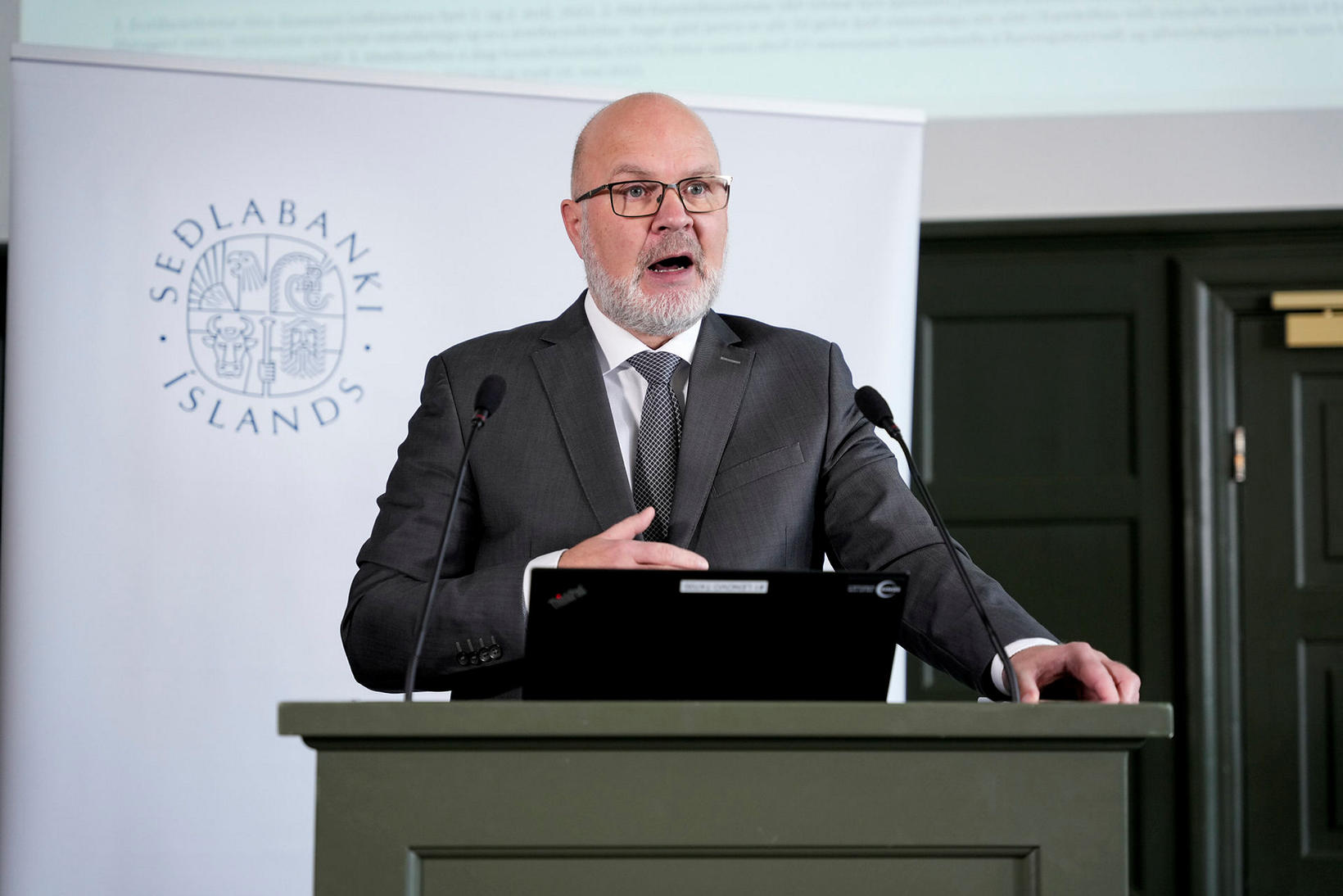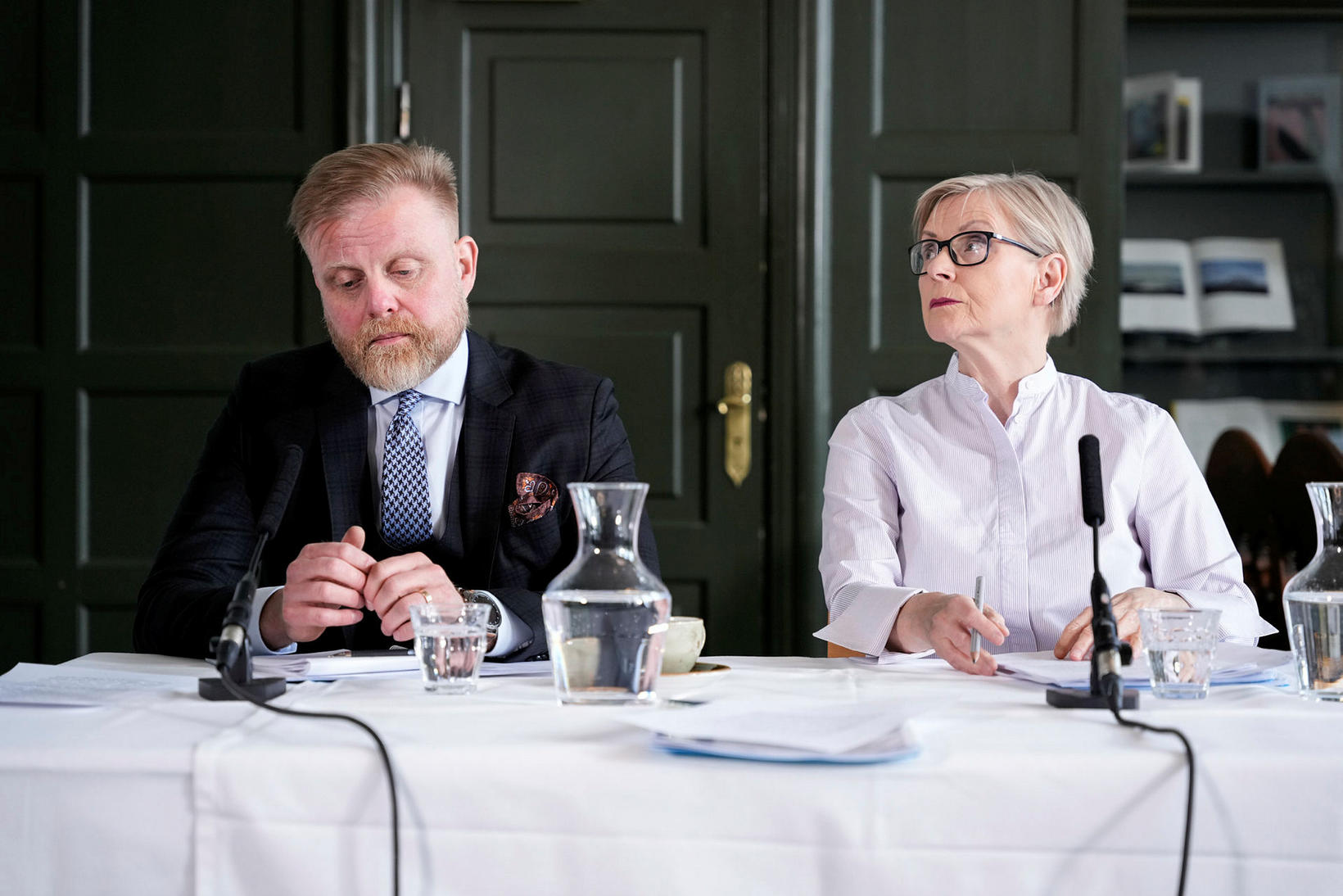"Punishing indebted households and ordinary people"
Ragnar Þór Ingólfsson, the director of VR Union and Ásgeir Jónsson, the governor of the Central Bank. Composite image
“Of course, families have become pessimistic, they do not cover these costs,” says Ragnar Þór Ingólfsson, chairman of VR Union. The Central Bank announced the 14th consecutive interest rate increase today, with the policy rate now at 9.25 percent.
Þórarinn G. Pétursson, chief economist of the Central Bank of Iceland, reviewed the main findings of the new booklet of the Icelandic Monetary Fund at a meeting regarding the monetary policy committee’s decision this morning. In his review, Pétursson referred to a Gallup poll, according to which households have become more pessimistic than before.
Monetary policy has come to a complete impasse
“I see it as a declaration of war on working people and indebted households,” Ingólfsson says.
Speaking to mbl.is, he says the decision is indeed a disappointment, although it was not a surprise. “It’s clear that the decision making of the monetary policy board is not in a good place,” he says.
"The central bank is using the policy rate to rein in the problems that rate hikes don't work on. That much is obvious."
Tourism a source of tension
Ingólfsson says the Monetary Policy Committee’s explanations demonstrate that inflation is primarily profit-driven, citing, for example, expansion in tourism, a drop in the supply of housing, despite increased need, and imported inflation.
“Higher interest rates don’t work on any of these things. Higher interest rates do not ease the tension that tourism is causing in the economy. Higher interest rates work against further development of the housing market. Higher interest rates do not either work in favour of imported inflation,” Ingólfson says.
He says that tourist arrivals are set to exceed two million, with the resulting demand for labour, goods, services and accommodation, a major source of tension in the Icelandic economy.
Use oil to extinguish fires
“Likewise, higher interest rates do not counteract the increase in corporate profits or margins, but less so it has a negative effect there, pushing up prices as Icelandic companies have debts of around 505 trillion,” says Ingólfsson, who says that the debt only pushes prices up.
Ásgeir Jónsson, the governor of the Central Bank and Rannveig Sigurðardóttir, the vice president of the Central Bank. mbl.is/Hákon
“They are punishing indebted households and ordinary people and those in the most vulnerable situation in our society. They are using oil to extinguish a fire.”
Ingólfsson says anyone can look at the composition of the index, at Statistics Iceland, and see what the main factors are causing inflation and see that higher policy rates do not remedy them, but are making the problem worse.
Indexed loans are a lethal cocktail
He says the fact that people are falling behind on fixed rates on unsecured loans is a huge problem. It will cause a great deal of runaway to indexed loans, which is a huge setback.
"Such loans are a lethal cocktail for consumers."
Ingólfsson says the Central Bank’s ruling of the economy has failed and had the Central Bank wanted to get a grip on the expansion that tourism is causing, they would have better applied increased taxation or entry fees in consultation with the government.
Defend the banks at the expense of the public
Ingólfsson says the situation is extremely difficult in the upcoming collective bargaining negotiations in the autumn. However, he and other union leaders are not an island, but are following the wishes of members. He said he feels a lot of anger among people, although there is already a great rift between the public, the government and the Central Bank.
“They is essentially protecting capital owners and increasing the profits of the banks at the expense of the public and indebted households,” Ingólfsson says, adding that VR Union does not take that lightly but will rather step up the bargaining in the autumn.
Does not exclude protests
Ingólfsson says it does not rule out the possibility of protests as a result of this policy. He and representatives of the Association of Tenants and of the Household Association staged a public protest earlier this year to protest governmental negligence towards the country’s households and families in the wake of the country’s soaring inflation and interest rate increases.
“It seems to be the only way to get the government and the Central Bank to understand what damage they are causing to Icelandic homes.”












